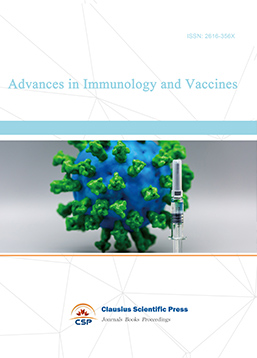Mechanism of acupuncture in the treatment of post-stroke depression
DOI: 10.23977/medsc.2021.020213 | Downloads: 8 | Views: 1752
Author(s)
Yingchun Xiao 1, Jianrong Hui 1,2, Pu Yang 1
Affiliation(s)
1 College of Acupuncture & Massage, Shaanxi University of Chinese Medicine, Xixian New Area 712046, China
2 Shaanxi Key Laboratory of Acupuncture & Medicine, Xixian New Area 712046, China
Corresponding Author
Jianrong HuiABSTRACT
Post-stroke depression is depression secondary to stroke, which is mainly characterized by mood disorders such as pessimism and depression. Its bad mood seriously affects the patients' daily life, social activities and neurological function recovery, and brings trouble and pain to the patients and their families. A large number of clinical literature studies have shown that acupuncture treatment can effectively improve limb function and depression symptoms of stroke patients, but the mechanism of acupuncture treatment is still unclear. The author through the retrospective analysis in recent five years the mechanism of the relevant literature found that acupuncture play to the role of the antidepressant mechanism mainly with acupuncture dysregulation of neurotransmitter content, inhibiting inflammatory cytokines secretion, increase neurotrophic growth factor protein content, lower hippocampal neuron apoptosis, regulate signaling pathways related protein expression, inhibition of the hypothalamus-pituitary-adrenal axis hypersecretion, so as to provide guidance for clinical treatment.
KEYWORDS
Post stroke depression, acupuncture, mechanism research, reviewCITE THIS PAPER
Yingchun Xiao, Jianrong Hui, Pu Yang. Mechanism of acupuncture in the treatment of post-stroke depression. MEDS Clinical Medicine (2021) 2: 66-71. DOI: http://dx.doi.org/10.23977/medsc.2021.020213
REFERENCES
[1] Drevets W C, Price J L, Furey M L. Brain structural and functional abnormalities in mood disorders: implications for neurocircuitry models of depression [J]. Brain Structure and Function, 2008, 213(1-2): 93-118.
[2] Wei N, Yong W, Li X, et al. Post-stroke depression and lesion location: a systematic review [J]. JOURNAL OF NEUROLOGY, 2015, 262(1): 81-90.
[3] Huang Jingjing, Chen Ningyong.Research progress on the pathogenesis of post-stroke depression [J]. Journal of Shanghai University of Traditional Chinese Medicine, 2014(3): 104-107.
[4] Kronenberg, Endres. Stroke and Depression [J]. Aktuelle neurologie, 2013, 40(10):553-556.
[5] Yu Zheng, Zhang Meiying, Li Mengqian, et al. The influence of psychosocial factors on the onset of post-stroke depression [J]. Journal of Nanchang University (Medical Edition), 2012, 52(2): 48-51.
[6] Zhou Xin, Ren Lu, Gao Yuanyuan, et al. Meta-analysis of acupuncture on the improvement of depression in patients with post-stroke depression [J]. Chinese Journal of Traditional Chinese Medicine, 2018, 36(12): 2875-2879.
[7] Wang Fang. Research progress on biomarkers of post-stroke depression [J]. Journal of International Neurology and Neurosurgery, 2019, 46(3): 325-329.
[8] Kronenberg G , Balkaya M , Prinz V , et al. Exofocal Dopaminergic Degeneration as Antidepressant Target in Mouse Model of Poststroke Depression[J]. Biological Psychiatry, 2012, 72(4):273---281.
[9] Sun Chongqing, Cai Ronglin, Li Peifang, et al. Acupuncture with "Tongdu Tiaoshen" on the protective effect of hippocampal neurons and the effect of monoamine neurotransmitters in post-stroke depression rats[J]. Chinese Acupuncture and Moxibustion, 2019, 39(7):741-747.
[10] Mei Cheng, Zhao Jingyuan, Duan Guoxiang, et al. The effect of scalp acupuncture with music electro-acupuncture on the behavior and brain tissue NE and 5-HT content in rats with post-ischemic stroke depression [J]. Journal of Acupuncture and Moxibustion, 2016, 32(12): 64-66.
[11] Xiao Wei, Zhang Xianbao, Wang Zhen, et al. Effects of acupuncture on neurotransmitters, serotonin transporter, serotonin 1A receptor, and norepinephrine α2 receptor in brain tissue of rats with post-stroke depression [J]. Acupuncture Research, 2016, 41(6): 528-534.
[12] Dhawan J , Benveniste H , Nawrocky M , et al. Transient focal ischemia results in persistent and widespread neuroinflammation and loss of glutamate NMDA receptors [J]. Neuroimage, 2010, 51(2): 599-605.
[13] Li Shulan, Liu Fenglian, Wang Xuebin, et al. The existence of glutamate and its receptors in the brain and the neurotoxicity of glutamate [J]. Chinese Tissue Engineering Research, 2004, 8(22): 4553-4555.
| Downloads: | 10301 |
|---|---|
| Visits: | 781647 |
Sponsors, Associates, and Links
-
Journal of Neurobiology and Genetics

-
Medical Imaging and Nuclear Medicine

-
Bacterial Genetics and Ecology

-
Transactions on Cancer

-
Journal of Biophysics and Ecology

-
Journal of Animal Science and Veterinary

-
Academic Journal of Biochemistry and Molecular Biology

-
Transactions on Cell and Developmental Biology

-
Rehabilitation Engineering & Assistive Technology

-
Orthopaedics and Sports Medicine

-
Hematology and Stem Cell

-
Journal of Intelligent Informatics and Biomedical Engineering

-
MEDS Basic Medicine

-
MEDS Stomatology

-
MEDS Public Health and Preventive Medicine

-
MEDS Chinese Medicine

-
Journal of Enzyme Engineering

-
Advances in Industrial Pharmacy and Pharmaceutical Sciences

-
Bacteriology and Microbiology

-
Advances in Physiology and Pathophysiology

-
Journal of Vision and Ophthalmology

-
Frontiers of Obstetrics and Gynecology

-
Digestive Disease and Diabetes

-
Advances in Immunology and Vaccines

-
Nanomedicine and Drug Delivery

-
Cardiology and Vascular System

-
Pediatrics and Child Health

-
Journal of Reproductive Medicine and Contraception

-
Journal of Respiratory and Lung Disease

-
Journal of Bioinformatics and Biomedicine


 Download as PDF
Download as PDF